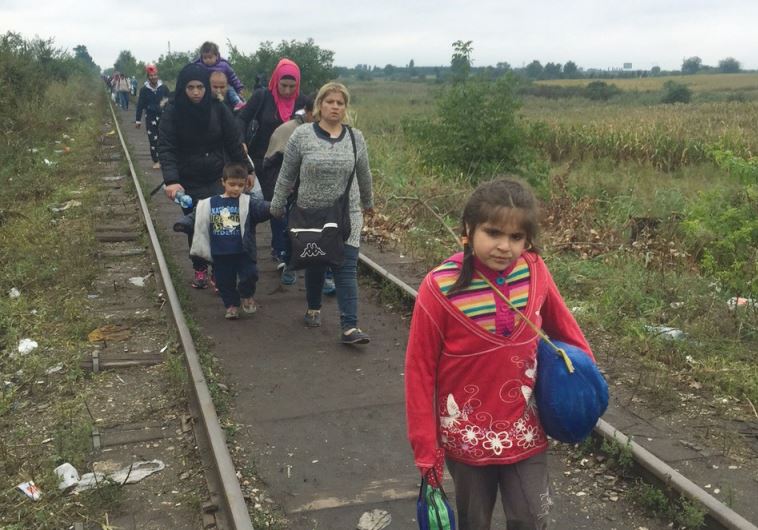Special to JPost: Refugees pray Hungary fence will remain open
Local Serbs didn’t seem overly bothered by the migrants, so long as they kept to the train tracks and off the main roads.
 REFUGEES WALK along train tracks leading from Serbia into Hungary on Friday(photo credit: SETH J. FRANTZMAN)
REFUGEES WALK along train tracks leading from Serbia into Hungary on Friday(photo credit: SETH J. FRANTZMAN)